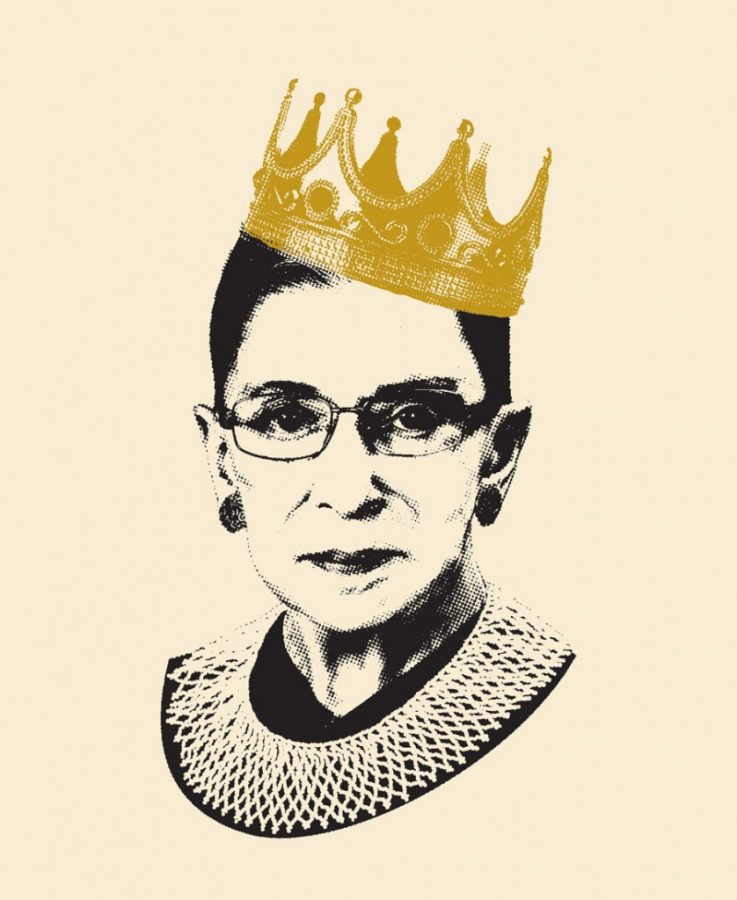Notorious RBG: The Life and Legacy of Ruth Bader Ginsberg
“[I would like to be remembered as] someone who used whatever talent she had to do her work to the very best of her ability.”
Ruth Bader Ginsberg: Supreme Court Justice, feminist, cultural icon. The list goes on. Her countless accomplishments and success paved the way for all women in the US.
First woman to:
- Become a member of the Harvard Law Review, a prestigious student-run legal journal for Harvard law students.
- Be named a tenured professor at Rutgers Univerity, where she taught law from 1963-1972.
- First Jewish woman to serve on the Supreme Court. (She only had one female predecessor, Justice Sandra Day O’Connor.)
- Lie in state at the US Capitol after her death.
Landmark cases won before the Supreme Court:
- Frontiero v. Richardson (1972): RBG represented a female US Air Force member who had to apply for benefits for her dependent husband, though wives were automatically assumed to be dependents on their military husbands. The Court found that this was gender-based discrimination and reversed the policy.
- Weinberger v. Wiesenfeld (1974): Wiesenfield, a recently widowed new father represented by RBG, applied for Social Security benefits, and was denied. The Court decided that this law was discriminatory and counter-productive, as any surviving spouse, no matter their gender should receive benefits to help them care for their child.
- Califano v. Goldfarb (1976): Goldfarb, another recent widower, applied for survivor’s benefits from Social Security but had to prove his wife provided more than half of his support before her death (women applying for survivor’s benefits didn’t have to prove this). The Court ruled that this violated the Due Process Clause of the 5th Amendment and rejected the archaic stereotypes that wives were always more dependent on their husbands.
- Duren v. Missouri (1978): RBG represented Billy Duren, who was convicted by an all-male jury. The Court found that Jackson County’s practice of automatically exempting women from jury duty violated the plaintiff’s 6th and 14th Amendment rights to a fair trial by creating an unfair jury pool and devaluing women’s contributions to a jury.
Ruth Bader Ginsburg was a champion for equal rights on every front. As a Supreme Court Justice, she fought not only for gender equality but racial equality, as well. She voted in favor of same-sex marriage in 2015. She wrote scathing dissents that earned her the nickname “Notorious RBG.”
We’re heartbroken to have lost such an important woman who broke countless glass ceilings and improved the lives of many Americans. But now is the time to celebrate her accomplishments and be grateful for her inspiring memory. Rest in Power, RBG.








